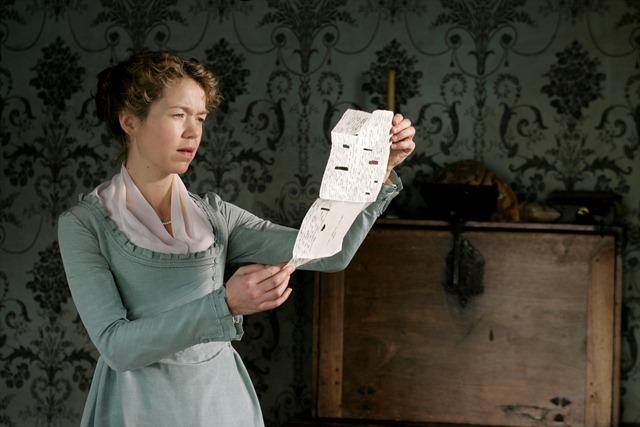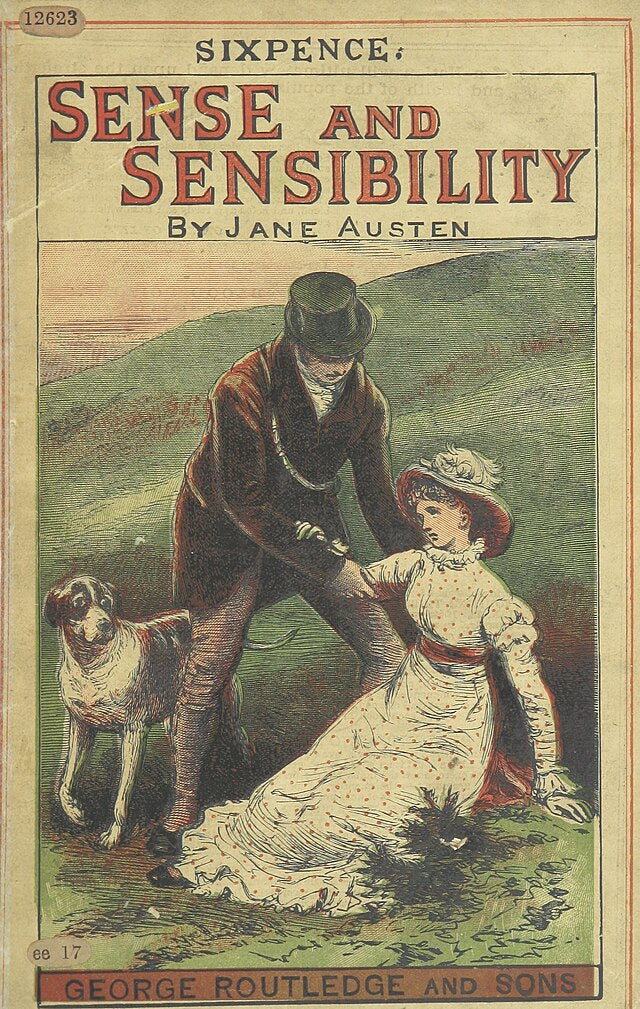Harris Bigg-Wither’s Marriage Proposal – An Ongoing Mystery?
In the late autumn of 1802, Jane and Cassandra Austen, then living in Bath, went to stay with their good friends, Catherine and Alethea Bigg at Manydown Park, not far from Steventon. The visit was welcomed by both Austen sisters, but it ended badly; a few days brought the return of Jane and Cassandra to their brother’s home at Steventon Rectory in tears, begging James, their clergyman brother, to take them back to Bath immediately.
It then became apparent that Harris Bigg-Wither, the son of the house and brother to Catherine and Alethea, had proposed marriage to Jane. He had been accepted, but by the following morning he was rejected, as Jane had changed her mind overnight. What was the reason behind Jane's initial acceptance of Bigg-Wither's proposal, followed by her retraction the following day? Certainly it seems likely that the proposal took her unawares. Was it because she realised how unhappy any marriage could be without at least some attraction towards her future husband? Did the realisation that marriage and child-bearing might mean the end of her writing career influence her? Jane Austen could be rather forthright about this side of married life, once describing her sister-in-law, Elizabeth, who gave birth to 11 children, as a “poor animal”.
In one of her letters to her sister Cassandra, she talks of an acquaintance, Mrs Deedes, who has recently given birth to a daughter, and comments that she now recommends to Mr and Mrs D. the regimen of separate rooms! Was this simply a witty comment for Cassandra’s amusement or did it reflect her true feelings that motherhood might effectively end her own literary life? We may also speculate whether by 1802 Jane sensed that she might be on the brink of breaking into the literary world, and that marriage to the (by some accounts) unprepossessing, rather socially inept young man might bring this ambition to a halt? Or was there some other reason?
Bigg-Wither was by all accounts some 6 years younger than Jane, and it is interesting to ponder whether this had any bearing on her ‘second thoughts’. In Pride and Prejudice the foolish Mr Collins is a few years younger than his future wife Charlotte Lucas, who has reached the ripe old age of 27 without being married! It is also interesting to consider whether Jane might have realised that she still had feelings for another man she had met some years before (Tom Lefroy), or perhaps the contrast was too great with another young man she had met and with whom a mutual attraction had been formed prior to his sudden death? Was she so startled by Bigg-Wither’s proposal that she give her consent without thinking what she was saying?

We will perhaps never know for certain, but when we read chapter 59 of Pride and Prejudice we learn how, in the privacy of the bedroom, Lizzy Bennet ‘opened her heart to her sister, Jane,’ about her attachment to Darcy. I cannot help but wonder if this scene, where Jane Bennet exclaims in horror at the very idea of her adored sister marrying this man, reflects in some way what happened between Jane and her beloved Cassandra after Bigg-Wither’s proposal. Was it Cassandra’s reaction that night, when the two of them were alone in their bedchamber, that helped change Jane’s mind about marrying Bigg-Wither?
Of course, neither Jane nor Cassandra left any record that we are aware of, but Jane Bennet’s anguished cry of ‘Oh Lizzy! Do any thing rather than marry without affection’ may give us some clue as to what actually took place. Unlike the character of Lizzy Bennet in Pride and Prejudice, however, Jane Austen was unable to give her own ‘solemn assurances of attachment’ to her sister.  Certainly, if we read the cautionary letters Jane later wrote to her nieces Fanny Knight and Anna Lefroy on the subject of their romantic involvements it seems clear that she counsels the advisability of much thought on the subject prior to any possible marriage proposal and acceptance.
Certainly, if we read the cautionary letters Jane later wrote to her nieces Fanny Knight and Anna Lefroy on the subject of their romantic involvements it seems clear that she counsels the advisability of much thought on the subject prior to any possible marriage proposal and acceptance.
In chapter 7 of Emma, the dialogue Jane gives Emma Woodhouse when advising Harriet Smith on Robert Martin’s marriage proposal is quite explicit: Emma talks of a woman’s duty at such time and says ‘If she can hesitate as to “Yes” she ought to say “No” directly. It is not a state to be safely entered into with doubtful feelings, with half a heart’. Was this the bitter voice of experience speaking and did Jane still deeply regret what she had done?
Perhaps it is testament to the strength of the Bigg girls affection and regard for the Austen sisters that their mutual friendship did eventually recover from this shock and continued to be close and warm. What were the implications of Jane Austen rejecting a proposal from Harris Bigg-Wither that had so much to recommend it? She must have been only too well aware that marriage to this comfortably-off young man would have been advantageous from a worldly point of view. She would have gained a settled home and welcome financial security, a single woman’s only real chance for an active and independent life and the resultant benefits for her sister and parents. Furthermore, it would have relieved the Austen brothers of the need to financially support and house their unmarried sisters when their parents died. We can only speculate as to the real reason why Jane Austen retracted her promise, but we may be sure that it affected her deeply. We can also only speculate what the Reverend and Mrs George Austen’s thoughts were.
****
Article written by Margaret Mills
July 2019
If you would like to learn more about Jane's life and times, why not peruse the Jane Austen Online Gift Shop for some great non-fiction reads!




4 comments
I was very young when I met my husband, but I never had a moments doubt when he asked my to marry him within 3 weeks of our first meeting. That’s the way it should be. You instinctively know when it’s right.
Angela Southern
“To thine own self be true”, is still solid advice to live by, notwhitstanding the advice giver. I cannot suppose otherwise than Jane Austen acting on the basis of this advice while reading about her decision in this article. It may not be the easiest road in life, however it will probably be best for one’s mental integrity and a peaceful soul.
T
Whilst Jane Austen was aware of how precarious life was for women, who depended on men, she was also a romantic at heart, her heroines eventually got their man. In real life, that is not always the case, as many women can confirm. Maybe Jane stuck to her romantic principles and would only marry for both money and love. A rare combination, that she took a huge gamble on in the hope of finding both. I suspect many men she met could not live upto the standards of her imaginary heroes and she therefore never found such a man.
ann pearce
I understand (after reading & rereading the above writings) why Jane would not accept the proposal.
Though, in her “times”…it must have been rather hard for a single woman. She has given me
inspiration, that one must be true to their commitment. I wish all young ladies of a certain age would
read Jane’s books.
Thank you.
Anonymous
Leave a comment
This site is protected by hCaptcha and the hCaptcha Privacy Policy and Terms of Service apply.